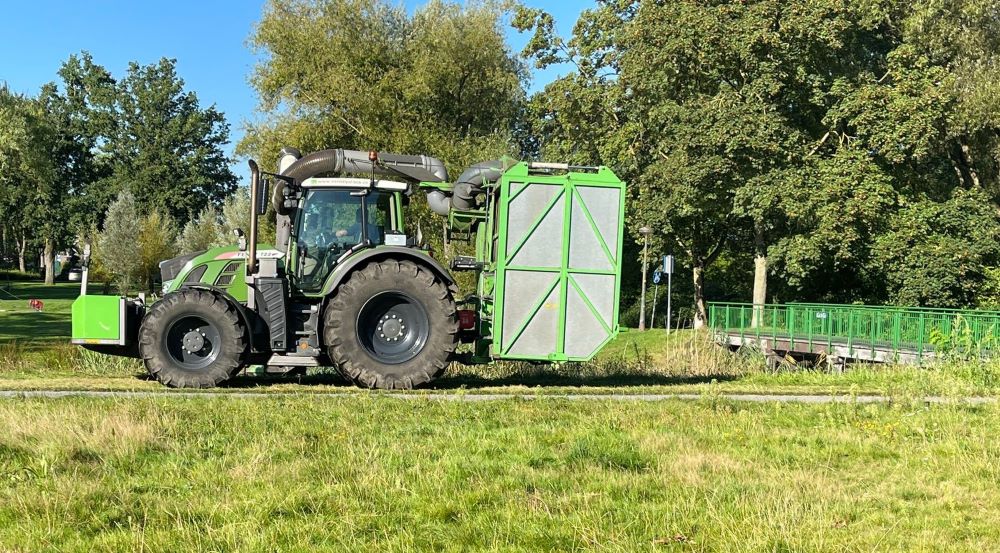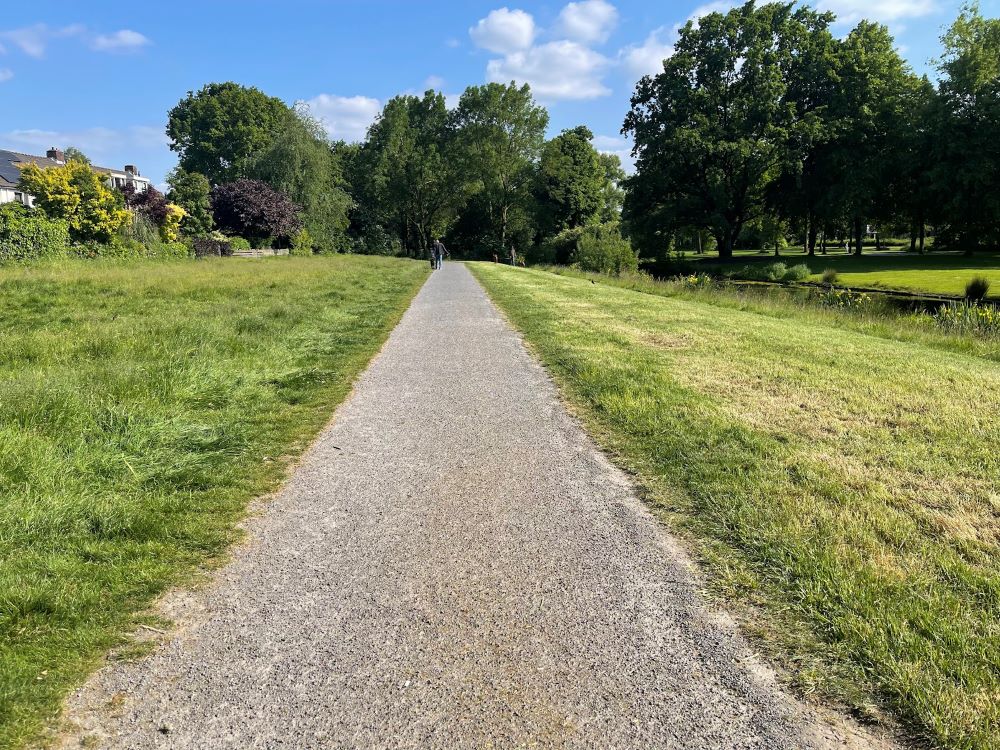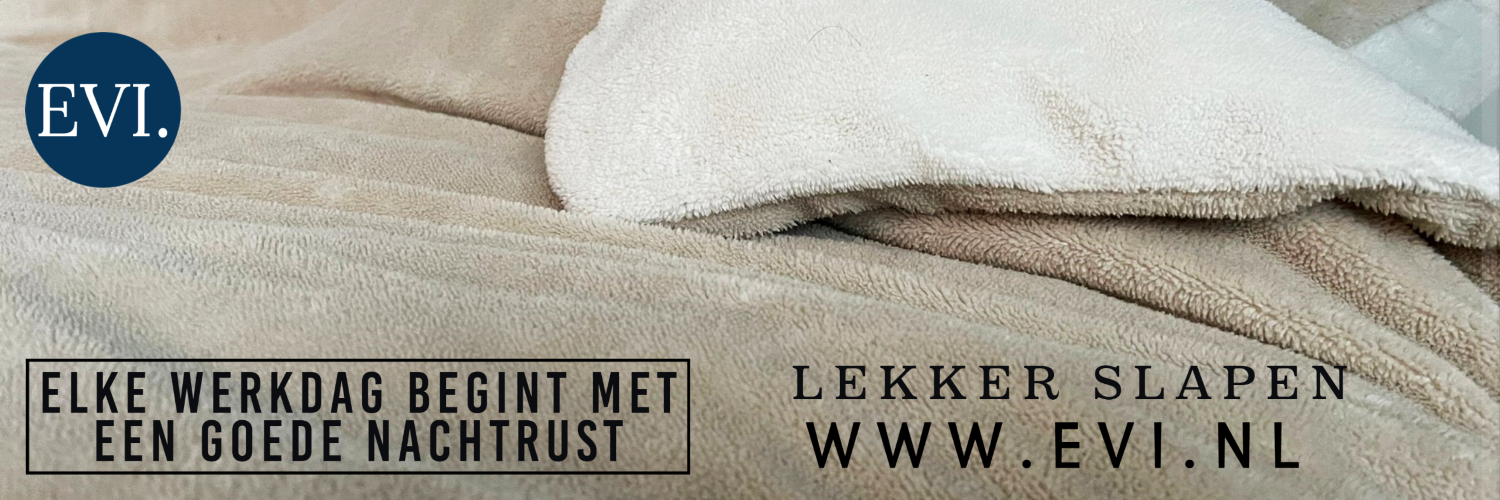The lawn management program has inadvertently led to yet another problem.
It may seem surprising, but a municipality's mowing policy can indeed influence the mobility of residents. Loopholes in residential areas serve an important purpose when it comes to residents' mobility. They are often the most direct route to the public road by bicycle or stroller. This is not only convenient, but also promotes the use of more sustainable means of transport such as cycling, which is good for both health and the environment.
In addition, loopholes also offer a practical solution for putting rubbish bins outside. Because residents can bring these to the street through their backyard, the bins do not have to be permanently at the front of the houses. This has a positive impact on the general aesthetics and cleanliness of the neighborhood. The mowing policy, which in some cases makes access to these gates more difficult, thus touches on an important aspect of the daily lives of the residents. Not only is their mobility restricted, but it also contributes to a less tidy appearance of the neighbourhood.
Eindhoven, especially the Achtse Barrier district, is going through another tumultuous period when it comes to lawn management. After decades of using loopholes to bring bins to the street, residents are now forced to detour through their living rooms. A situation that once again raises questions about the balance between environmental management and the daily lives of the inhabitants.
area manager
Leontien van Agt, the Area Manager Stratum at the Municipality of Eindhoven, who did not want to answer direct questions from our editors but referred to the press office of the municipality, sees it differently. From her answer to the residents to various messages that also reached us, she says there is no right of way on the municipal land behind the houses. It is also "not a play lawn" for her, and there are "enough places where children can play in a shorter mown lawn."
A remarkable statement, given that Van Agt suddenly ignores the fact that residents have been bringing their garbage cans, bicycles and prams to the street via this route for over 30 years. If paths have been built by the municipality that lead to the rear of houses, it would make sense that they would remain accessible. This can easily be done with a mowing strip along the houses without causing further damage to biodiversity. This falls under the responsibility of management and maintenance, and not under legal interpretations of the right of way by the area manager.

The focus is on practical management and maintenance to ensure the quality of life and accessibility of the public space.
The area manager has a central role in managing reports and complaints related to the public space. This can vary from loose pavement tiles and broken traffic signs to litter and weeds. It is a comprehensive task that requires local expertise and aims to keep public space safe and usable for all residents.
After receiving a complaint or report, it is common for the area manager to issue orders to various contractors to address the issue. Supervision of the quality and completion of this work is also part of the job description. The area manager acts as a link between the residents and other departments of the municipality, such as project implementation and permits. Reports that have a wider reach are therefore internally forwarded to the right department.
The area manager plays no role in making legal decisions, such as about the right of way. These types of issues fall outside the jurisdiction and require specialized legal treatment. The area manager should refrain from playing a 'riding judge' in such situations.
The residents do not feel heard and lack a certain degree of transparency in decision-making. Now the complaints are settled without any investigation into the situation on the ground. Predecessor Bass of Louvain previously emphasized that transparency and involvement of residents are core values in the management of public green spaces. It would be to the credit of the municipality if it applied these values consistently, especially in times of changes that have a direct impact on the daily lives of the residents.

A mowing strip behind the houses is difficult, but along the water that does not seem to be a problem in Eindhoven.
Leontien van Agt is at the center of the current debate about the mowing policy in the Achtse Barrier district. Her positions and statements form the backbone of municipal policy, but also raise questions among residents. One of the most remarkable aspects of Van Agt's policy is the inconsistency in her statements. On the one hand, she indicates that the areas behind the houses are not intended as play lawns and that there is no right of way on the municipal land. On the other hand, she points to ecological reasons for changing the lawn to herb-rich grass.
arguments
These conflicting arguments create confusion among residents. It raises the question of what exactly is the driving force behind recent policy changes: Is it the pursuit of more biodiversity, or is it about cutting off traditional paths that residents have used for years? To break this stalemate, the municipality must find a middle ground. A possible solution could be to mow a clear path from the backyards to the street, while preserving most of the grass for biodiversity.
In concrete terms, it is a narrow mowing strip to bring rubbish bins, bicycles and prams to the street and nothing else. This lack of direct dialogue has led to an accumulation of questions among residents. Transparency and openness are of great importance in an issue that affects both the quality of life and the mobility of a neighbourhood. It is also interesting to compare van Agt's policy with that of her predecessor, Bas van Leuven. Where Van Leuven emphasized the involvement of the residents and the search for compromises, Van Agt seems to be sailing a more autonomous course. It raises questions about the future of the policy and the way in which the municipality intends to deal with its residents.
Do you also have a complaint about the public space in Eindhoven? – Click here



